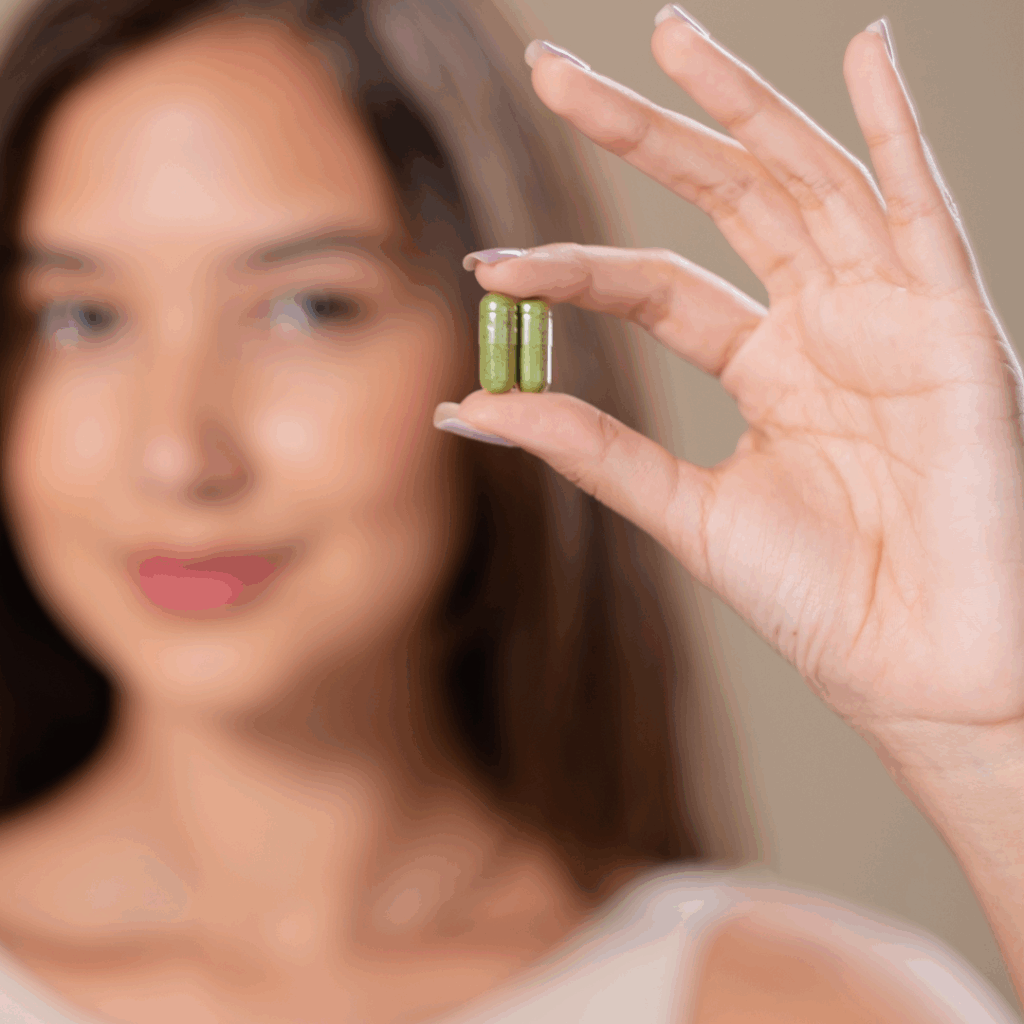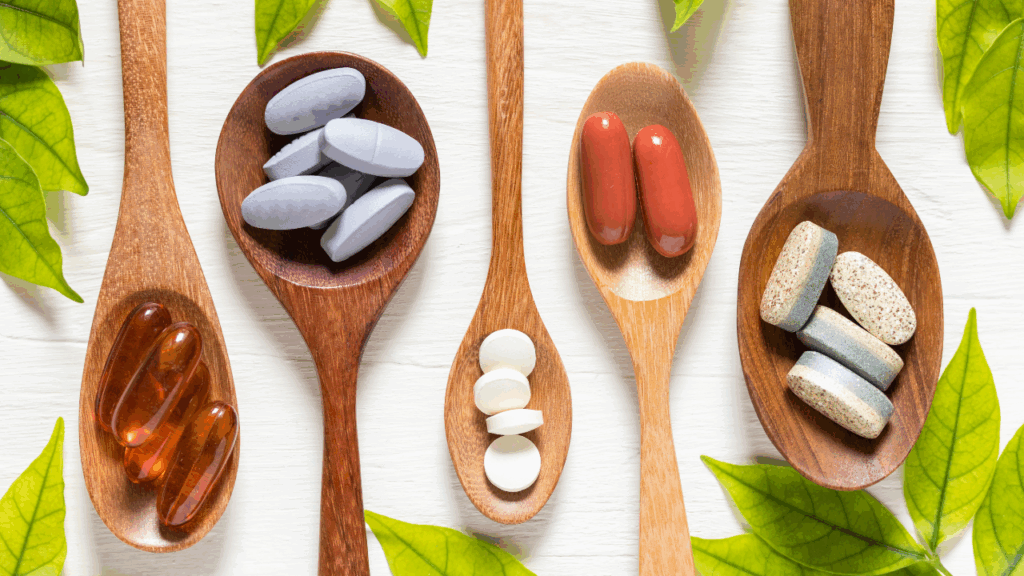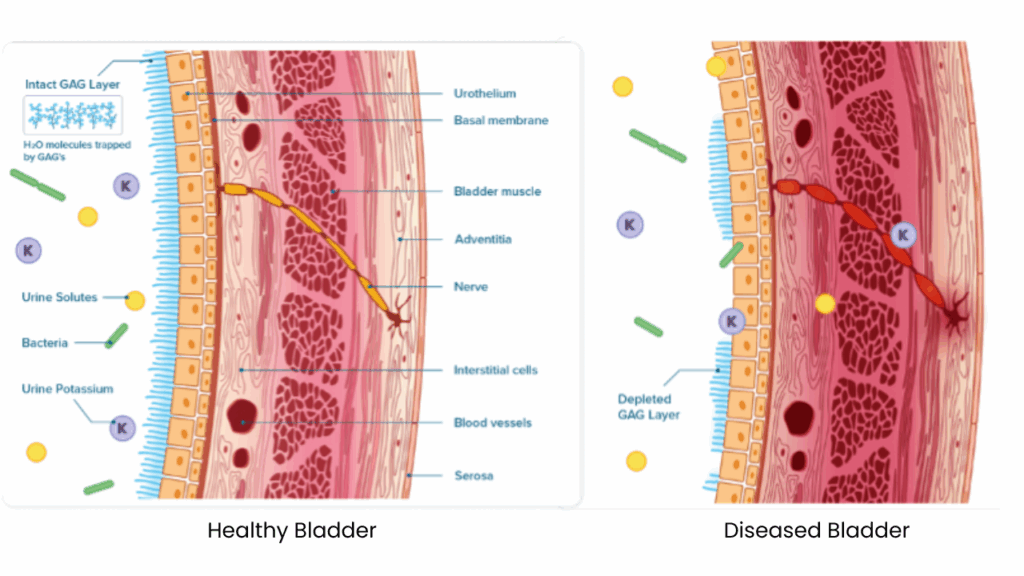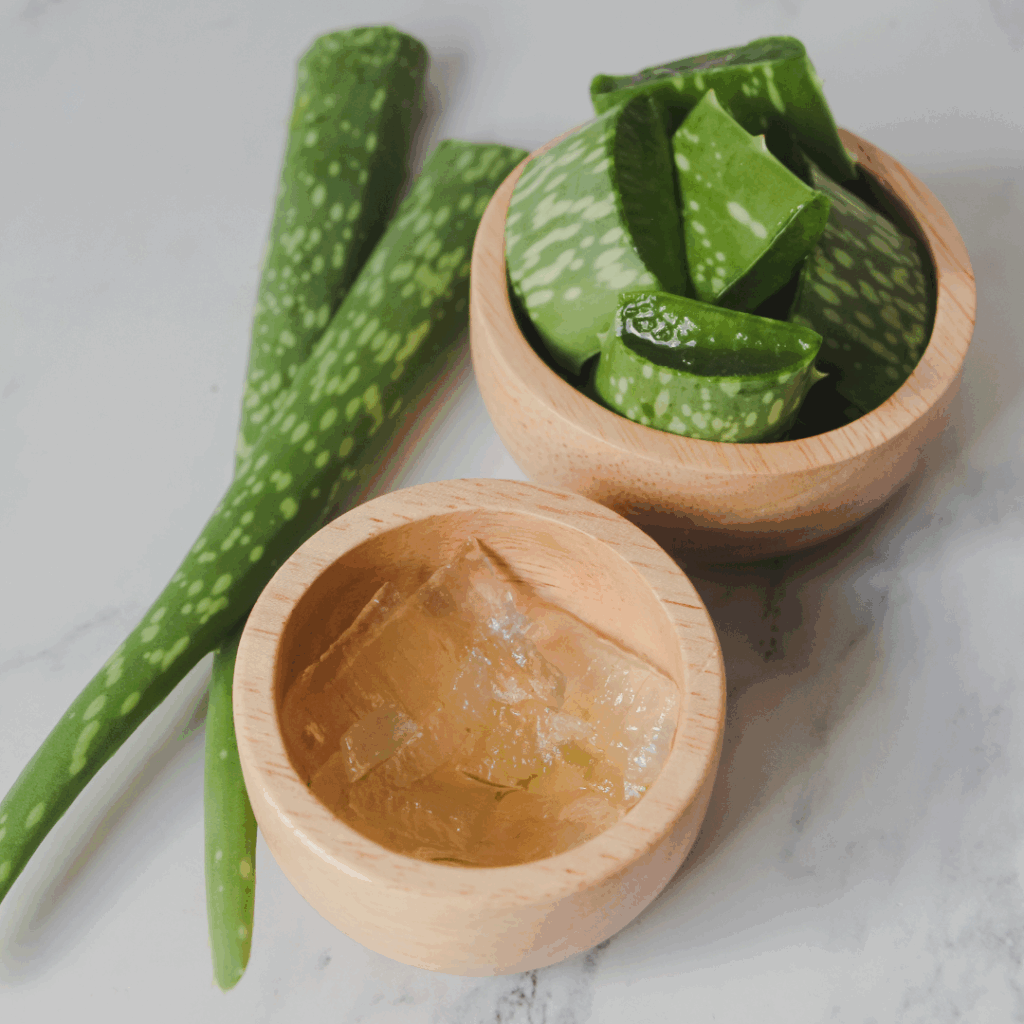Free shipping on all orders over $50 | Subscribe & save 15%
Free shipping on all orders over $50 | Subscribe & save 15%


Supplements are everywhere–grocery stores, online, even at your hair salon. But do supplements help? And are they worth the price? These questions are even more important when considering taking supplements for a medical condition like interstitial cystitis (IC), aka Painful Bladder Syndrome (PBS), because while some supplements can be helpful others might even be harmful.
When you’re trying to decide on what supplements to take (this could be while standing in front of a supplement aisle, or entire department at a store or browsing tens to hundreds of web pages), it’s important to understand at least the basics of what condition you are taking the supplement for.

When it comes to IC/PBS, the basic premise is that there is some type of inflammatory reaction going on. A popular theory of why IC/PBS is associated with symptoms of bladder discomfort, pain, and irritative symptoms like urinary frequency and urgency, is that the bladder lining is damaged. The damaged bladder lining allows irritants normally present in the urine (remember that urine is a waste product and a major way that we eliminate acid from our bodies) to “seep” into the bladder wall and cause inflammation. What does this mean? You should look for supplements with ingredients that are aimed at reducing inflammation and repairing the bladder wall.

One tried and true supplement (also considered a nutraceutical) is aloe vera. It’s likely you have used aloe vera for burns (and it works!) because there is evidence to support that aloe vera has both anti-inflammatory and antioxidant effects, which makes it a logical supplement for IC/PBS. Aloe vera can potentially decrease bladder irritation and protect cells from damage with its anti-inflammatory and antioxidant actions, respectively. Other less known benefits of aloe vera are that it is antimicrobial, meaning it can reduce the risk of infection, but more importantly for IC/PBS aloe vera contains glycosaminoglycans (GAGs).

Remember earlier when I mentioned that it’s important to know the basics of whatever condition you are taking supplements for? IC/PBS is associated with inflammation, but the underlying cause of the inflammation is the damaged bladder lining that allows waste products to seep into the bladder wall. One of the major building blocks of the bladder wall are glycosaminoglycans (GAGs). A bonus feature of aloe vera is, in addition to its amazing anti-inflammatory and antioxidant properties, that it also contains glycosaminoglycans. How could you not take aloe vera if you have IC/PBS?
Aloe vera seems like a miracle supplement, but like many conditions maximum benefit may be seen when you combine it with other supplements for a synergistic effect. Another supplement that has a great track record of being an anti-inflammatory and antioxidant is quercetin. It’s a lesser known anti-inflammatory and antioxidant supplement, but it has great potential for IC/PBS because it can reduce histamine release (yet another theory of IC/PBS is increased release of histamine). A combination of aloe vera and quercetin has been shown to improve eczema. But wait, there’s more! Quercetin itself doesn’t contain GAGs, but it has been shown to stimulate the production of GAGs.
How can you avoid harming yourself with supplements? First and foremost, read the ingredient labels of any supplement to make sure you don’t have an allergy or other reason that could cause some type of reaction to the product. Information is literally at your fingertips these days, so if you are unfamiliar with an ingredient just do a quick google search to see if there are any potential negative side effects. If there are potential side effects, compare dosages of that in the supplement to what dose is associated with potential side effects. Even if there aren’t any known serious side effects, moderation is key. Follow the recommended daily servings on the supplement label. If two tablets or capsules is recommended, it doesn’t mean that ten are better and might cause an unwanted side effect. Also, do your own research on the company and its founders. Health supplements should always be backed by medical professionals and not a blindly profit driven corporation. And finally, check to see where the supplements are manufactured. Even if not FDA approved, supplements in made in the US are far more likely to be safe for use, compared to those that are imported from other countries. It is not unheard of for some foreign supplements to be filled with ineffective ingredients, but also may be cut with harmful toxins and heavy metals.
Last thought for this blog: despite a common desire to have a magic bullet that will cure a condition, most chronic conditions require a routine, dedication, and patience. Whether it’s diabetes, obesity, or IC/PBS, following a healthy lifestyle, reducing stress, and consistently taking supplements and medications are paramount in order to see improvement. @femetry is here to help you on this journey.
